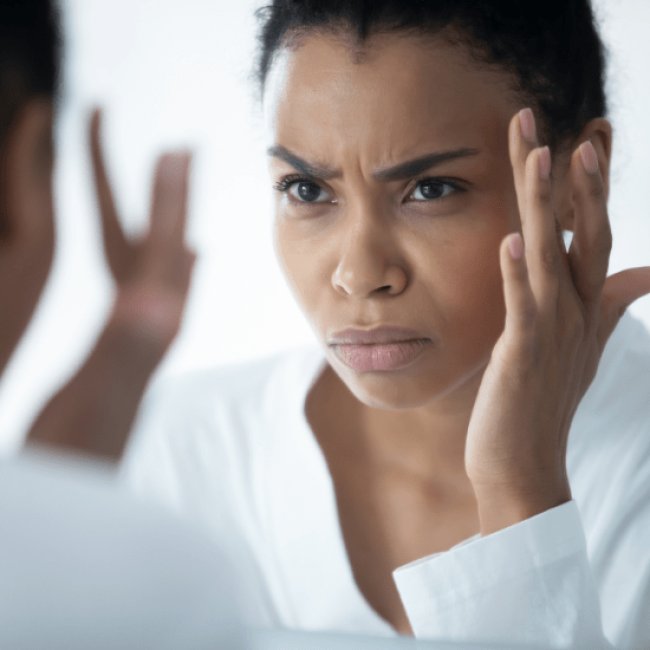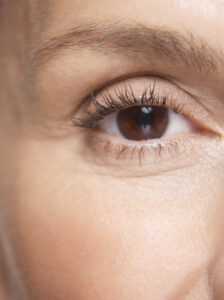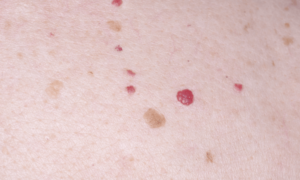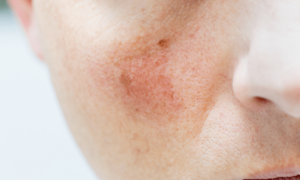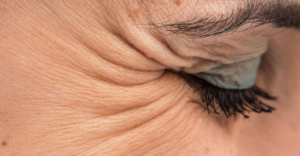In today’s fast-paced world, stress has become a common occurrence in our daily lives. But beyond the mental and emotional toll, have you ever wondered about its impact on your skin, particularly with wrinkles?
“Does stress cause wrinkles?” is a question that many ask, especially as we strive for both mental well-being and youthful appearances.
Our post delves into the science behind stress and its potential role in skin ageing, providing an understanding of how our lifestyle choices and emotional health can reflect on our skin.
Key Takeaways
- Accelerating the Ageing Process: Stress can accelerate the skin ageing process, potentially leading to wrinkles.
- Body’s Response to Stress: The body’s response to stress affects skin health and appearance.
- Lifestyle & Skincare Routines: Lifestyle and skincare routines play a crucial role in managing stress-related skin issues.
- Understanding Root Causes: Understanding and addressing the root causes of stress can help in maintaining youthful skin.
The Science Behind Stress and Skin Ageing
Biological Impact of Stress on Skin
Stress triggers hormonal responses in the body, notably the release of cortisol. Cortisol, known as the stress hormone, has several effects on the skin.
It can break down collagen and elastin, the proteins responsible for skin’s firmness and elasticity. This breakdown can lead to the formation of wrinkles and fine lines.
Additionally, prolonged stress can impair the skin’s barrier function, leading to dryness, dullness, and a more aged appearance.
Emotional Stress and Facial Expressions
Emotional stress often manifests physically through our facial expressions. Habitual frowning or furrowing the brow in times of stress can contribute to the development of expression lines, which over time may become permanent wrinkles.
The repetitive muscle movements involved in these expressions etch lines into the skin, a process that accelerates as the skin naturally loses its elasticity with age.
More detailed information can be found here to further understand how emotional stress impacts our skin, particularly in accelerating ageing and forming expression lines.
Lifestyle Factors and Stress Management
The Role of Lifestyle in Skin Health
A healthy lifestyle can be a powerful tool in combating the skin effects of stress. Getting enough sleep, a balanced diet rich in antioxidants, regular exercise, and hydration all contribute to better skin health.
These habits not only help in reducing the body’s stress levels but also aid in maintaining skin vitality and delaying the signs of ageing.
Skincare Routines in Stress Management
An effective skincare routine can also play a significant role in managing stress-related skin ageing.
Products containing retinoids, peptides, antioxidants, and hyaluronic acid can help replenish lost collagen and maintain skin hydration.
Regular use of sunscreen protects the skin from UV-induced damage, which can be exacerbated by stress.
Additionally, practices like facial massage and using soothing skincare products can have a relaxing effect, indirectly helping to manage stress.
Our Thoughts
The question “Does stress cause wrinkles?” highlights an important aspect of skin health – the undeniable link between our emotional well-being and physical appearance.
While stress can accelerate skin ageing and contribute to the formation of wrinkles, understanding this connection empowers us to take proactive steps. By managing stress through lifestyle choices and skincare routines, we can protect our skin’s youthfulness and vitality.

Stress and Wrinkle FAQs
Does stress directly cause wrinkles?
Can reducing stress improve my skin's appearance?
Are there specific skincare ingredients that help with stress-related wrinkles?
Can lifestyle changes really affect the skin's ageing process?
Absolutely, a healthy lifestyle including a balanced diet, regular exercise, adequate sleep, and hydration plays a crucial role in maintaining skin health and can slow down the ageing process.

